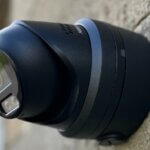A Complete Guide to Home CCTV Systems for UK Residents
As concerns about home security rise, CCTV cameras have become a popular choice for homeowners across the UK. Installing a CCTV system can help protect your property, deter criminal activity, and provide peace of mind whether you’re home or away.
This guide covers everything you need to know—from different types of CCTV systems to key features and legal considerations under UK law.
Why Choose CCTV for Your Home?
Adding CCTV to your home offers several advantages:
- Deters Criminal Activity: Visible cameras discourage burglars and vandals.
- Provides Valuable Evidence: Video recordings can support police investigations and insurance claims.
- Enables Remote Monitoring: Watch live video feeds via smartphone or tablet.
- Offers Everyday Convenience: Keep an eye on deliveries, pets, or family members remotely.
Types of CCTV Systems for Homes
There are three main CCTV setups to consider:
Wired Systems
- Reliable and consistent video quality
- Usually requires professional installation
- Best suited for long-term, fixed use
Wireless Systems
- Easy to install and move as needed
- Connects via Wi-Fi, so internet strength affects performance
- Ideal for DIY users or renters
Smart (Cloud-Based) CCTV
- Works with smartphone apps and smart home devices
- Stores footage in the cloud, often with subscription fees
- Allows easy remote access and control
Indoor vs Outdoor Cameras: What You Need to Know
Outdoor cameras are built to withstand weather, often with features like night vision and motion detection.
Indoor cameras tend to be smaller and less noticeable—great for watching interiors, children, or pets.
Features to look for include:
- HD video quality (1080p or higher)
- Two-way audio communication
- Motion-triggered alerts
- Options for cloud or local video storage
UK CCTV Regulations for Homeowners
If your cameras capture footage beyond your property boundary (e.g., public streets or neighbours’ gardens), you must comply with UK GDPR and the Data Protection Act 2018.
Key points to remember:
- Display clear signage informing people they are being recorded
- Use footage solely for security purposes
- Respect privacy rights by allowing individuals to access footage of themselves
- Avoid storing footage longer than necessary
If your cameras only record your own property, these laws do not apply, but following best practices is still recommended.




